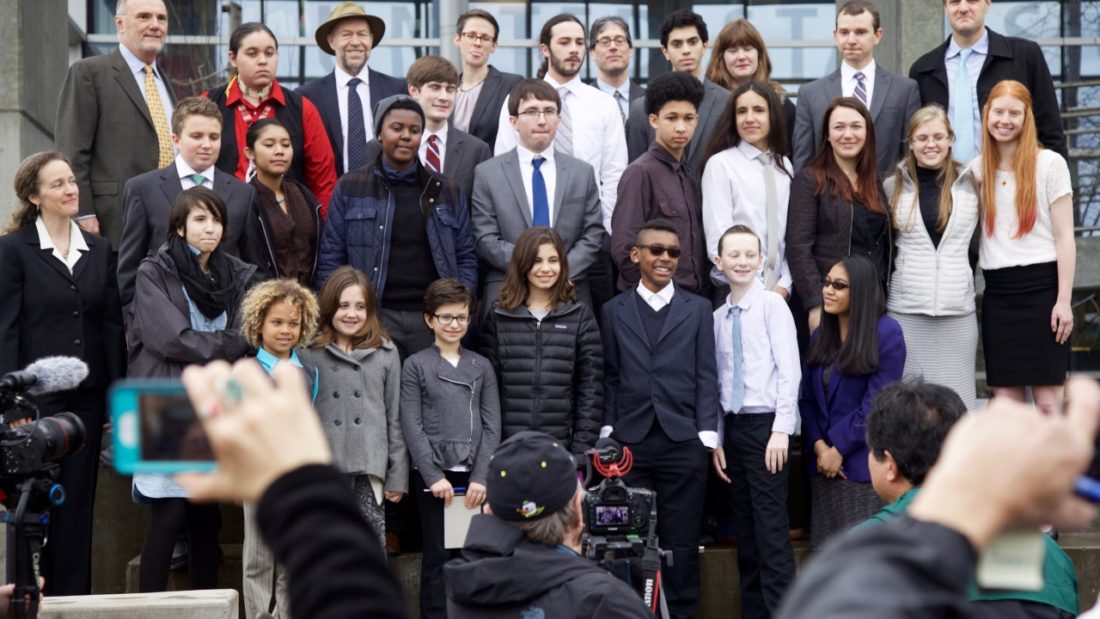A maverick climate lawsuit few legal authorities thought would survive more than a few months came within two days of questioning the world’s most powerful oil executive under oath.
But that prize remains tantalizingly out of reach after a federal magistrate judge in Oregon yesterday put an 11th-hour hold on the deposition of Rex Tillerson, who was CEO of ExxonMobil until December 31 when he stepped down from leading the petroleum giant to become incoming President Trump’s Secretary of State.
Tillerson was to be questioned today in Dallas, Texas by lawyers representing a group of 21 youth plaintiffs in what is already a landmark climate lawsuit. The deposition would have meant that a small group of plaintiff’s lawyers based in Eugene, Oregon would become the first to question the most senior ExxonMobil official in a lawsuit over climate change.
However, Magistrate Judge Thomas M. Coffin instead ordered what a spokesperson for the plaintiff’s called “an informal discovery dispute resolution” after oil industry lawyers said they would refuse to produce Tillerson for questioning.
A telephone conference among the parties and Judge Coffin is to be held January 27th, according to Meg Ward, communications and youth engagement director for Our Children’s Trust.
Filed on behalf of a group of of 21 young people, the suit demands that the United States take immediate and aggressive measures to fight global warming.
The lawsuit charges that since the at least the 1960s, the federal government “has known that carbon dioxide (“CO2″) from burning fossil fuels was causing global warming and dangerous climate change, and that continuing to burn fossil fuels would destabilize the climate system on which present and future generations of our nation depend for their wellbeing and survival.”
But despite this knowledge, according to the complaint, the government “continued their policies and practices of allowing the exploitation of fossil fuels.”
Under a somewhat novel legal theory, pioneering climate scientist James Hansen, the former director of the NASA Goddard Institute for Space Studies, is suing the United States as guardian for “Plaintiff Future Generations” who, it is charged, “retain the legal right to inherit well-stewarded public trust resources and to protection of their future lives, liberties, and property – all of which are imminently threatened by the actions of Defendants challenged herein.”
The suit seeks both pro-active action to combat global warming and the end of policies that worsen it.
This is the first real set-back in what had been an unbroken advance by the plaintiff’s toward trial, which Coffin had tentatively set for the summer or early fall of this year.

